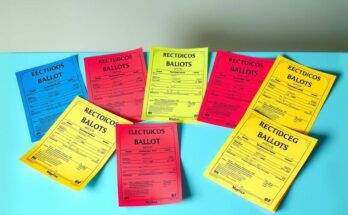Venâncio Mondlane, Mozambique’s opposition leader, is open to serving in President Daniel Chapo’s government provided specific conditions are met. Chapo aims to create an inclusive administration amid ongoing unrest following disputed elections. Both politicians are negotiating terms that could alleviate political tensions resulting from prior violence and electoral disputes, reflecting a fragmented opposition and complex governance challenges in Mozambique.
Venâncio Mondlane, the leader of Mozambique’s main opposition party, has expressed his willingness to participate in President Daniel Chapo’s government if certain conditions are met. Chapo, on his part, has initiated discussions about forming an inclusive government, suggesting an openness to engage with opposition parties amidst ongoing political unrest following disputed elections that led to approximately 300 fatalities. While Mondlane insists that the election results were illegitimate, Chapo continues to uphold his victory as validated by the highest court.
After his inauguration, Mondlane declared himself the “people’s president” and stated that Chapo was “forced” upon the nation. Nonetheless, Mondlane has suspended protests for the first 100 days of Chapo’s term under the agreement that the President will fulfill specific demands, including the release of detainees and compensations for victims of police violence. He emphasized that progress on these demands would either lead to negotiations or a resumption of protests.
Chapo articulated his desire to govern inclusively and implement reforms addressing electoral laws and human rights. He indicated discussions with various opposition factions are in progress, indicating his intention to broaden participation in governance to include voices from across society, while maintaining a focus on competency and patriotism for proposed government positions.
At 47 years old, Chapo was nominated by the ruling Frelimo party, which has governed since Mozambique’s independence. He aims to secure increased investment to foster a dynamic economy that can create jobs for youth. Mondlane, 50, has garnered support particularly among young Mozambicans through his campaign slogan “Save Mozambique – this country is ours,” having previously broken away from the Renamo party to run independently.
A smaller party backing Mondlane gained seats in parliament, indicating a fragmentation in opposition support and the complexities within Mozambique’s political landscape following an election marred by turmoil and violence.
Following disputed elections in Mozambique, political tensions have escalated significantly, with the main opposition leader, Venâncio Mondlane, declaring himself the “people’s president.” The election results, which declared Daniel Chapo as the winner, are contested by Mondlane, who cites irregularities. This situation is compounded by civil unrest marked by violence and fatalities, raising concerns about governance and civil rights in the country. Both leaders are now in a complex dialogue about potential cooperation to stabilize the political climate, reflecting broader issues of inclusion and representation.
In conclusion, the emerging dialogue between Venâncio Mondlane and Daniel Chapo signifies a potential shift toward political stability in Mozambique. Both leaders have expressed conditional openness to collaboration, which hinges on addressing the grievances stemming from the recent electoral crisis. The outcome of these discussions could be pivotal for Mozambique’s future governance and social peace, particularly in fostering inclusivity and addressing youth unemployment within the socio-economic framework.
Original Source: www.bbc.com




